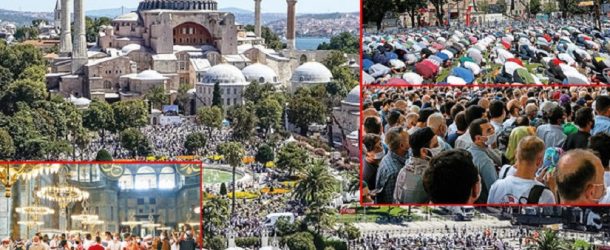Introduction
After a court decision that made the 1934 Presidential decree void, Turkish President Recep Tayyip Erdoğan successfully converted Hagia Sophia (Ayasofya) into a mosque from a museum.[1] The decision was welcomed and celebrated with enthusiasm by the religious/Islamist circles in Turkey. First public prayer in Hagia Sophia was organized on July 24, 2020 and it turned into a gigantic political/religious show.
First prayer at Hagia Sophia after 86 years
The Ceremony
The first Friday prayer at Hagia Sophia, which President Erdoğan and other top Turkish state officials participated, was broadcasted live from all Turkish tv channels. According to Turkish journals, a total of 350,000 people participated into the first prayer at Hagia Sophia.[2] However, only selected 1,000 people were taken inside the building for prayer, the rest of the population had to pray outside of the historic monument due to safety measures. In addition, a total of 21,353 policemen were on duty on that day for security reasons.[3] President Erdoğan recited Quran in Arabic himself during the ceremony.[4]
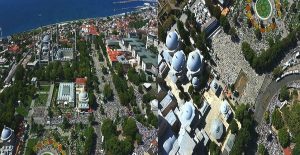
Large crowd around Hagia Sophia on July 24, 2020
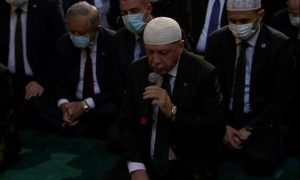
President Erdoğan reciting Quran in Arabic at the opening ceremony of Hagia Sophia to Islamic prayer
The head of Turkey’s Directorate (Presidency) of Religious Affairs (Diyanet İşleri Başkanlığı) Professor Ali Erbaş directed and delivered the first Friday khutbah (sermon). Erbaş ascended to the minbar (pulpit) of the mosque with a sword on in his hand, in order to revitalize the Ottoman tradition of gaza (conquest).[5] Erbaş’s choice of grabbing a sword and his speech took a lot of criticism from Turkey’s opposition party figures including CHP (Republican People’s Party) deputies Özgür Özel, Gürsel Tekin, and Mehmet Ali Çelebi[6] and İYİ Parti (Good Party) leader Meral Akşener[7]. Especially Erbaş’s phrase “Any property that is endowed is inviolable in our belief and burns whoever touches it; the charter of the endower is indispensable and whoever infringes upon it is cursed” is largely understood as a heavy criticism towards Turkey’s founder Mustafa Kemal Atatürk who gave the decision to turn the mosque into a museum in 1934.[8] Erbaş later made a public announcement and explained that his words did not target Atatürk.[9]
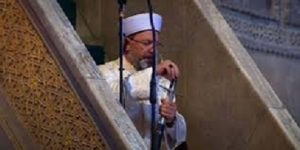
Ali Erbaş
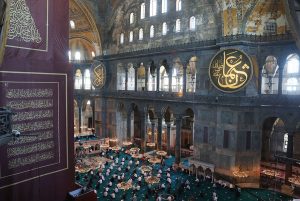
First public prayer at Hagia Sophia after 86 years
Caliphate Discussions
The high media and public attention to the Islamization of Hagia Sophia led to the emergence of caliphate discussions in Turkey. Journalist Ruşen Çakır, who is critical of Erdoğan government’s authoritarian and Islamist tendencies in recent years, said that Erdoğan’s next step could be to bring back Caliphate.[10] Pro-government and Islamist journalist Abdurrahman Dilipak on the other hand supported Erdoğan and said that Muslims need and deserve to have their own spiritual leader (Caliph) similar to other faith groups.[11] In addition, Islamist magazine Gerçek Hayat’s (Real Life) cover stating “Şimdi değilse ne zaman, sen değilsen kim? Hilafet için toplanın” (If not now, when? If not you, who? Get together for Caliphate) created controversy and took a lot of criticism from pro-secular groups.[12] Yeni Akit tv moderator and experienced journalist Fatin Dağıstanlı also talked positively about the re-proclamation of the Caliphate.[13]
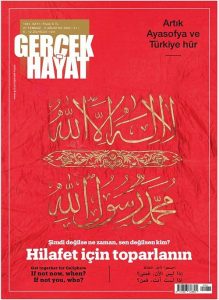
Gerçek Hayat magazine’s controversial cover
President Erdoğan on the other hand denied claims about his intention to declare Caliphate and said that these malevolent discussions were created in order to overshadow the historical opening of Hagia Sophia.[14] Moreover, Communications Director of the Turkish Presidency Fahrettin Altun stated that they are against all sorts of radicalism and Caliphate discussions are nonsense.[15] AK Parti (Justice and Development Party) deputy and Parliamentary Group Chairman Professor Naci Bostancı and party spokesman Ömer Çelik also rejected claims about their party’s intention to bring Caliphate.[16] Furthermore, popular journalist Ahmet Hakan underlined that the proclamation of Caliphate would be almost impossible; since there will be other contenders from other influential Islamic countries such as Saudi Arabia, Egypt, United Arab Emirates, and Pakistan etc. as well and the Islamic world is divided into many different groups and states having different interests.[17] Erdoğan loyalist journalist and political commentator Abdülkadir Selvi also wrote that President Erdoğan is disturbed of Caliphate discussions by quoting Fahrettin Altun.[18]
The History of the Islamic Caliphate
Caliphate comes from the Arabic term “khalifah” (halife in Turkish), the successor.[19] The term was used after the death of Prophet Muhammad in 632 in order to exalt his successor. After Muhammad, Abū Bakr (632-634), Prophet Muhammad’s father-in-law was designated by Muslim elders as the Caliph since the Prophet did not leave any clear instruction about how to succeed him. A minority group later named as Shiites supported Prophet Muhammad’s son-in-law Ali’s claim to Caliphate instead of Abū Bakr, which became a turning point in the history of Islam in terms of sectarianism. Omar (634-644) replaced Abū Bakr as the second Caliph. Othman (644-656) was the third and Ali (656-661) was the fourth Islamic Caliph. However, upon the assassination of Ali, Mu’awiya (661-680) became the fifth Caliph and the Caliphate was acquired by the Umayyad dynasty in 661. The Battle of Karbala (680) during this stage further divided the Islamic world and polarized Shiites (Ali supporters) and Sunnis (Mu’awiya supporters). The Abbāsids, descendants of an uncle of Prophet Muhammad assumed the Caliphate in 749 and al-Saffāḥ (749-754) became the first Abbāsid Caliph. The Abbāsids dynasty lasted until 1258 when the Mongol invasion destroyed the city of Baghdad and led to the death of almost 800,000 inhabitants.
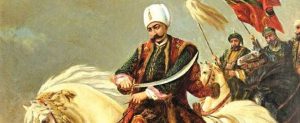
Yavuz Sultan Selim
Descendants of the Abbāsids continued to keep their Caliph claim under the protection of Mamluks in Cairo, but the Islamic world stayed largely divided until 1517, when Ottoman Sultan Selim I (Selim the Grim or Selim the Resolute, Yavuz Sultan Selim in Turkish) conquered Egypt. However, until the 18th and 19th centuries, the Caliphate was not effectively used by the Ottoman Sultans politically. Starting from the 18th century, with the decline of the Ottoman statecraft, Ottoman Sultans began to use their Caliph title more often in order to increase their influence over Muslim population. Especially in the late 19th century, during the reign of Abdul Hamid II or Abdulhamid II (1876-1909), pan-Islamism became the official ideology of the Ottoman throne and the Caliphate title was tried to be used efficiently in order to survive against European imperial powers including England, France, and Russia.
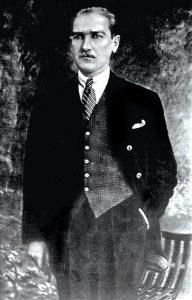
Mustafa Kemal Atatürk
The Caliphate was abolished after the emergence of modern Turkey. Mustafa Kemal Atatürk, the savior and founder of modern Turkey, saw Caliphate as an obsolete institution that is not in conformity with the global trends (the spirit of modernity, increasing nationalism, and the emergence of new nation states around the world). Atatürk also established Directorate of Religious Affairs in 1924 in order to provide religious services to people within a secular state. However, Turkish type laicité was based on the control of religion and religious movements by the state as opposed to American secularism that is based on complete separation of the state and religion including even the funding of religious services. Thus, opposing to strict state control, some conservative/Islamist groups in Turkey began to advocate a more libertarian state policy starting from the early days of the Republic, whereas secularists were also unhappy of the allocation of state resources to imams and religious services. Islamists gradually gained power after Turkey’s transition into multi-party democracy in 1950 and in the mid-1990s, with the Welfare Party (Refah Partisi)-True Path Party (Doğru Yol Partisi) coalition government (Refahyol), Necmettin Erbakan became the first Islamist Prime Minister of Turkey. After Erbakan, his disciple Recep Tayyip Erdoğan took office in 2003 and so far continued to rule Turkey as the leader of AK Parti. Erdoğan was able to create a larger space for Islam and Islamists people within the system by removing the headscarf ban in universities and public institutions and by allowing the graduates of Prayer and Preacher Schools (İmam Hatip Okulları) to be employed everywhere. Hagia Sophia move was the last big step of Islamization for Erdoğan. However, for many, it was just a symbolic move and was made for domestic political purposes (more public support).
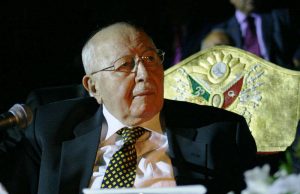
Erbakan was Turkey’s first Islamist Prime Minister
The efforts of reestablishing Caliphate in the Islamic world persisted although Turkey was able to stay away from these discussions thanks to its strong secular tradition. Political Islamist movements such as the Muslim Brotherhood (Ikhwan) in Egypt proposed ideas for the proclamation of Caliphate. In Iran, Shiites were able to establish their religious leadership (called the Supreme Leader) after the Islamic Revolution of 1979. After Ruhollah Khomeini (1979-1989), Ali Khamenei (1989-) is Iran’s current Supreme Leader. Starting from the early 2000s, some of the leaders of radical Islamic terrorist organizations such as Al-Qaeda and ISIS (IS, ISIL or DAESH) also declared their Caliphate. Abu Bakr al-Baghdadi, the leader of ISIS, who was killed by American military forces in 2019 for instance, was a self-declared Caliph in the Islamic world. The success of anti-American and radical terrorist groups in using the Caliphate issue in gathering and recruiting terrorists around the world by brainwashing them, led to the popular discussions in the Islamic world about whether the Caliphate should be reestablished by intellectual people who defend peaceful methods and peaceful coexistence with people from other religions.
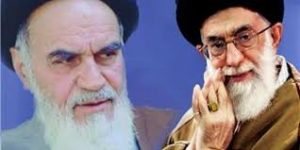
Islamic Republic of Iran was able to establish its religious leadership after the Islamic Revolution in 1979, which for many was the reinstatement of the post of Caliphate limited to the Shiite world
The Abolition of Caliphate in Turkey
Under the leadership of Mustafa Kemal Atatürk, Turkey successfully conducted its Independence War (1919-1922) against the invading Greek Army in Anatolia. The first constitution adopted by Atatürk and his parliament (Turkish Grand National Assembly), the 1921 constitution (Teşkilât-ı Esasiye Kanunu)[20] underlined the importance of popular with its first Article stating; “Sovereignty is vested in the nation without condition”. However, there was not any regulation concerning the Caliphate within the short (composed of only 23 Articles) constitution. In fact, with the revision made in the constitution in 1923, the official religion of the state was stated as Islam.[21] However, on October 30, 1922, Atatürk and his parliament legislated a bill named “Türkiye Büyük Millet Meclisi’nin, hukuku hâkimiyet ve hükümraninin mümessili hakikisi olduğuna dair” (law no 308) that allowed the separation of the Sultanate from the Caliphate. The next day, the Ottoman Crown Prince Abdulmejid II (II. Abdülmecid) was elected the last Ottoman Caliph by the parliament instead of his deposed cousin Mehmed VI Vahideddin (Sultan Vahdettin).
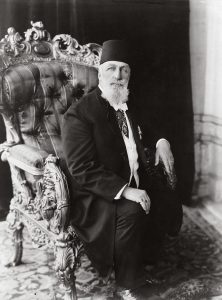
The last Ottoman Caliph Abdulmejid II (II. Abdülmecid)
After Atatürk’s declaration of a Republic on October 29, 1923, a new constitution was prepared and accepted by the TGNA. The 1924 Constitution[22] repeated in the Article 2 that “the official religion of the state is Islam” and did not contain any specific Article about the Caliphate or secularism. However, with a law (no 481) legislated by the parliament in 1924, the Caliphate was abolished.[23] The first Article of the law stated that “The Caliph is deposed and the Caliphate is abolished since it is already present within the meaning and concept of the government and the Republic” (Halife haledilmiştir. Hilâfet, Hükümet ve Cumhuriyet mâna ve mefhumunda esasen mündemiç olduğundan hilâfet makamı mülgadır). This was a bit controversial and vague statement that allowed Political Islamists to claim that the Parliament has right to claim Caliphate. However, in 1928, a revision was made within the Article 2 of the 1924 Constitution and “Islam is the official religion of the state” statement was removed.[24] Moreover, in 1937, secularism (laiklik) was added to the Article 1 of the constitution as part of the “Six Principles” of Atatürk (Türkiye Devleti, cumhuriyetçi, milliyetçi, halkçı, Devletçi, lâik ve inkılâbçıdır).[25] So, Turkey constitutionally outlawed the post of the Caliphate and Turkey’s subsequent constitutions (1961 and 1982 constitutions) also kept secularism as a safeguard against radical Islamist movements with the Article 2 within the constitution. In fact, the 1982 constitution made secularism even an unchangeable principle with the Article 4 stating that “The provision of Article 1 regarding the form of the State being a Republic, the characteristics of the Republic in Article 2, and the provisions of Article 3 shall not be amended, nor shall their amendment be proposed.”[26] Thus, defending Caliphate in Turkey is unconstitutional and unlawful.
Caliphate in the Modern World: Absurd or Necessary?
We can categorize the views stated for the caliphate discussions into two main categories. Those who are in favor of the Caliphate point out the lack of leadership in the Islamic world, which leads to radical groups such as Al-Qaeda and ISIS to grasp power and negatively direct and represent Muslims around the world. It is a fact that people who are following these radical groups and their extremist leaders are often poor and uneducated young Muslims who are deprived of modern life conditions and adequate education. These people claim that, with a good spiritual leadership, Muslims could be better directed and radicalism can be curbed. However, this view is still largely seen in the Western world including Turkey as dangerous and radical.
The second view is the secular approach that asserts that the post of Caliphate does not belong to modern world and even discussing it is absurd. Supporters of this view claim that, similar to the emergence of Protestantism and the gradual secularization of European nations afterwards, Islamic world needs more individualism and secularism rather than religious authorities and indoctrination. Moreover, these people also underline that the religious leadership battles between influential Muslim states such as Turkey, Saudi Arabia, and Egypt could lead to further problems in the Islamic world. For instance, Mustafa Akyol, a young political commentator who tries to develop a secular and liberal interpretation of Political Islam claims that, “Caliphate is not a ‘requirement of Islam’, but a ‘historical experience of Muslims’” and “Today, it can’t bring any good. Instead, it can bring more intra-Muslim conflict on who ‘the real Caliph’ is.”[27]
A third view which I want to discuss here is the establishment of a modern scientific body within the Islamic Cooperation Organization (former Organization of Islamic Conference) that could be used as a new platform to discuss Islamic theocratic matters within the light of science, modernity, rationalism, and contemporary political, economic, and sociological necessities. With the participation of all Muslim countries’ most sophisticated experts, an organization of this sort could be used as a mechanism to prevent the spread of radicalism in the Islamic world and to stop hatred ideology towards Christians, Jews, Hindus, non-believers etc. I state this view because although I share the secular view that Caliphate is not a solution, it is also a fact that there are widespread radical groups and organizations that use this gap for their own purposes. So, a scientific institution within the Islamic Cooperation Organization that will deliver good messages to Muslims in terms of individual faith, similar to the contemporary mission of the many other religious leaders, could be an alternative model.
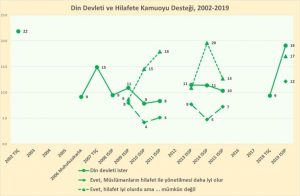
The graph for ISSP surveys that show support in Turkey for Sharia and the Caliphate[28]
In terms of Turkey, we should also mention that the Turkish society is largely secularized and the support for the reinstatement of Caliphate is still low. According to Murat Yetkin, an experienced Turkish journalist, who makes a reference to Ali Çarkoğlu and Ersin Kalaycıoğlu’s regular International Social Survey Programme (ISSP) surveys[29], the support for a Sharia-based state do not exceed 20 percent in contemporary Turkey.[30] However, Yetkin underlines that support for Caliphate has been constantly raised in the last decade. So, although few people want Sharia rules, the idea of Turkey leading the Sunni Islamic world has become a more popular view in the last years due to neo-Ottomanism discussions and the success of President Erdoğan’s Islamist policies. Thus, we should not underestimate the Islamization of Turkey and the attractiveness of the grandeur feelings that pioneering the Islamic world spreads to right-wing (Islamists, conservatives, and Turkish nationalists) people. Another problematic issue that is on the agenda in Turkey on the other hand is the violence against women and problems related to male-female equality which seem to be increasing simultaneously with the rise of Political Islam.
Conclusion
Finally, I think, Turkey and all other Muslim/Islamic countries have to focus on the democratic quality and life standards of their citizens before Caliphate claims. It is a fact that there are injustices against Muslims, no Muslim dominated state is represented in the United Nations Security Council, and Muslim countries are more backward and less democratic compared to Western states, but the solution to these problems is not about Caliphate. The real aim should be to establish somehow democratic regimes that are supported by people and to create better conditions for people so that there could be peace and stability. The mechanism I mentioned earlier within the Islamic Cooperation Organization can also be an alternative view to solve radicalism problem among Muslim nations.
Assoc. Prof. Dr. Ozan ÖRMECİ
[1] To read my earlier analysis on the Islamization of Hagia Sophia, see; http://politikaakademisi.org/2020/07/18/hagia-sophia-controversy-the-changing-status-of-the-historical-sanctuary/.
[2] https://www.hurriyet.com.tr/gundem/akin-akin-ayasofyaya-350-bin-kisiyle-ilk-namaz-41572411.
[3] https://www.milliyet.com.tr/gundem/son-dakika-ayasofya-camiinde-tarihi-gun-86-yil-sonra-ilk-namaz-6267199.
[4] https://www.duvarenglish.com/politics/2020/07/24/erdogan-recites-the-quran-at-hagia-sophia/.
[5] https://www.duvarenglish.com/politics/2020/07/24/turkeys-top-religious-authority-head-delivers-friday-sermon-at-hagia-sophia-with-a-sword-in-hand/.
[6] https://www.hurriyetdailynews.com/diyanet-heads-sermon-at-hagia-sophia-stirs-debate-156881.
[7] https://www.sozcu.com.tr/2020/gundem/iyi-parti-genel-baskani-meral-aksener-grup-toplantisinda-41-5956448/.
[8] https://www.hurriyetdailynews.com/diyanet-heads-sermon-at-hagia-sophia-stirs-debate-156881.
[9] https://www.hurriyet.com.tr/yazarlar/ahmet-hakan/ali-erbas-vefat-edene-dua-edilir-beddua-degil-41572912.
[10] https://www.youtube.com/watch?v=UescZSLFBPo.
[11] https://www.youtube.com/watch?v=BuA-x84gt_U.
[12] https://www.haber7.com/guncel/haber/2999586-gercek-hayat-ne-yapmaya-calisiyor-provokasyona-tepkiler.
[13] https://dokuz8haber.net/gundem/yeni-akit-bunun-arkasina-hilafet-gelmeli/.
[14] https://www.youtube.com/watch?v=QchkMq4VS1c.
[15] https://www.trthaber.com/haber/gundem/iletisim-baskani-altundan-hilafet-tartismalarina-tepki-505475.html.
[16] https://www.veryansintv.com/akpden-bir-hilafet-aciklamasi-daha-partinin-gundemini-erdogan-belirler.
[17] https://www.hurriyet.com.tr/yazarlar/ahmet-hakan/hilafet-gelse-kac-halifemiz-olur-41574256.
[18] https://www.yurtgazetesi.com.tr/medya/selvi-erdogan-hilafet-tartismalarindan-h158831.html.
[19] Summarized from https://www.britannica.com/place/Caliphate/The-Abbasid-caliphate; https://www.oxfordreference.com/view/10.1093/acref/9780191737275.timeline.0001; and https://tr.wikipedia.org/wiki/Halifeler_listesi.
[20] https://anayasa.tbmm.gov.tr/docs/1921/1921ilkmetin/1921-ilkhali.pdf.
[21] https://anayasa.tbmm.gov.tr/docs/1921/1921-2/1921-2.pdf.
[22] For the original constitution; https://anayasa.tbmm.gov.tr/docs/1924/1924-ilkhali/1924-ilkhali.pdf.
[23] Full name of the law was “Hilafetin ilgasına ve Hanedanı Osmaninin Türkiye Cumhuriyeti nıemaliki
haricine çıkarılmasına dair kanun”. To read the bill; https://www.tbmm.gov.tr/tutanaklar/KANUNLAR_KARARLAR/kanuntbmmc002/kanuntbmmc002/kanuntbmmc00200431.pdf.
[24] https://anayasa.tbmm.gov.tr/docs/1924/1924-1/1924-1.pdf.
[25] https://anayasa.tbmm.gov.tr/docs/1924/1924-4/4-degisiklik.pdf.
[26] https://global.tbmm.gov.tr/docs/constitution_en.pdf.
[27] https://twitter.com/AkyolinEnglish/status/1288493992393560064.
[28] https://yetkinreport.com/2020/07/20/ayasofya-seriat-hilafet-ve-kamuoyu/.
[29] http://w.issp.org/menu-top/home/.
[30] https://yetkinreport.com/2020/07/20/ayasofya-seriat-hilafet-ve-kamuoyu/.


